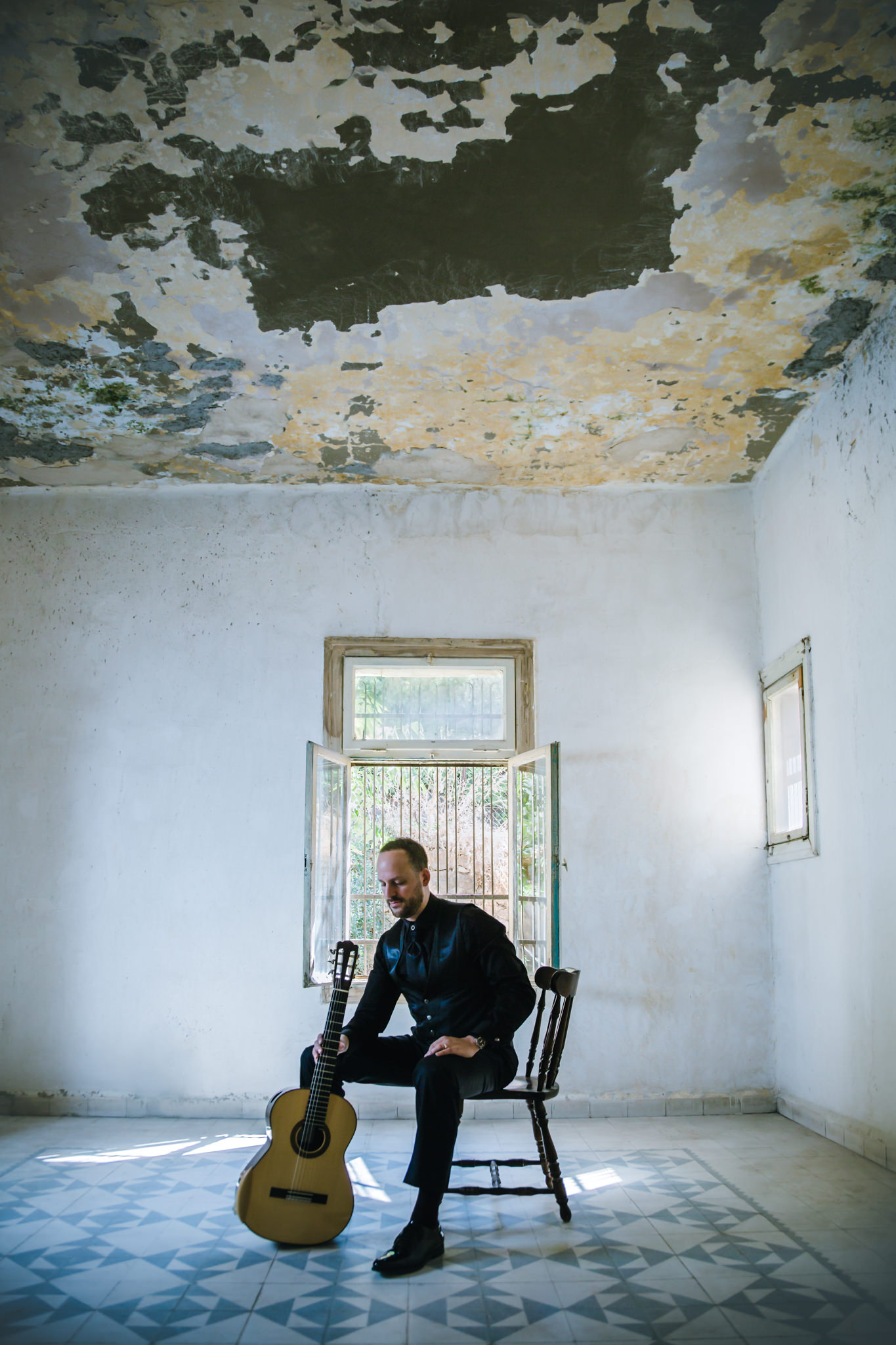
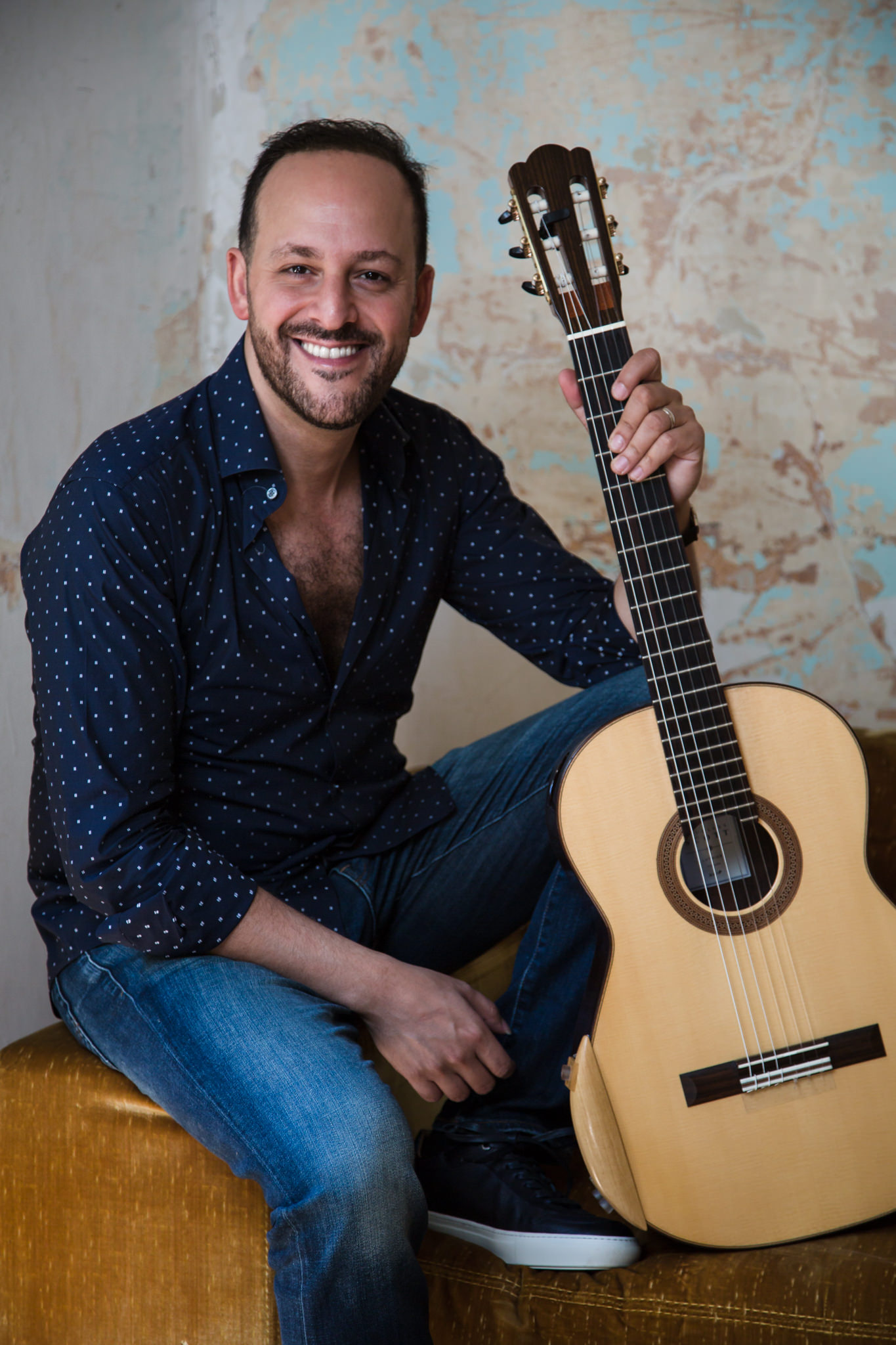
Tariq Harb, an acclaimed Jordanian-Canadian guitar virtuoso, is arguably one of the finest young guitarists to emerge on the scene these last years. Always polished, always musical, Tariq’s playing has been praised on many stages across the world and he’s been lauded as “Canada’s next classical guitar superstar” by CBC Radio’s NEXT! Fortunately, Tariq had time to spend sharing some of his journey with Six String Journal readers. Hope you enjoy this one!
Personal
When did you start playing and why? Or, what drew you to the guitar initially?
With the classical guitar, my story is a bit unusual. It started at 26 years of age, having restarted my violin training 2 years prior, at age 24. I write “restarted” because I actually picked up theviolin at 6, for 2 years until I was 8, then I received an electric guitar as a Christmas gift from my mother, and all hell broke loose LOL! Anyways, what drew me to the guitar in general at first was Slash, the guitarist from the LA rock band Guns N’ Roses.What drew me to the classical guitar was the classical/jazz guitarist Roddy Elias, who happened to be my composition teacher during my undergraduate violin degree at Concordia University. Basically I left the violin twice for the guitar!
What repertoire do you enjoy playing the most?
Baroque, Latin American and Spanish repertoire. I also enjoy playing the blues quite a bit.
What guitar or guitars do you perform on? Strings?
Currently I’m performing on a Douglass Scott, 2018 spruce top guitar and on a Martin Blackwell, 2019 double cedar top.I use Savarez CR 540 strings mainly, and I also like the La Bella 2001 and Argento series normal tension basses.
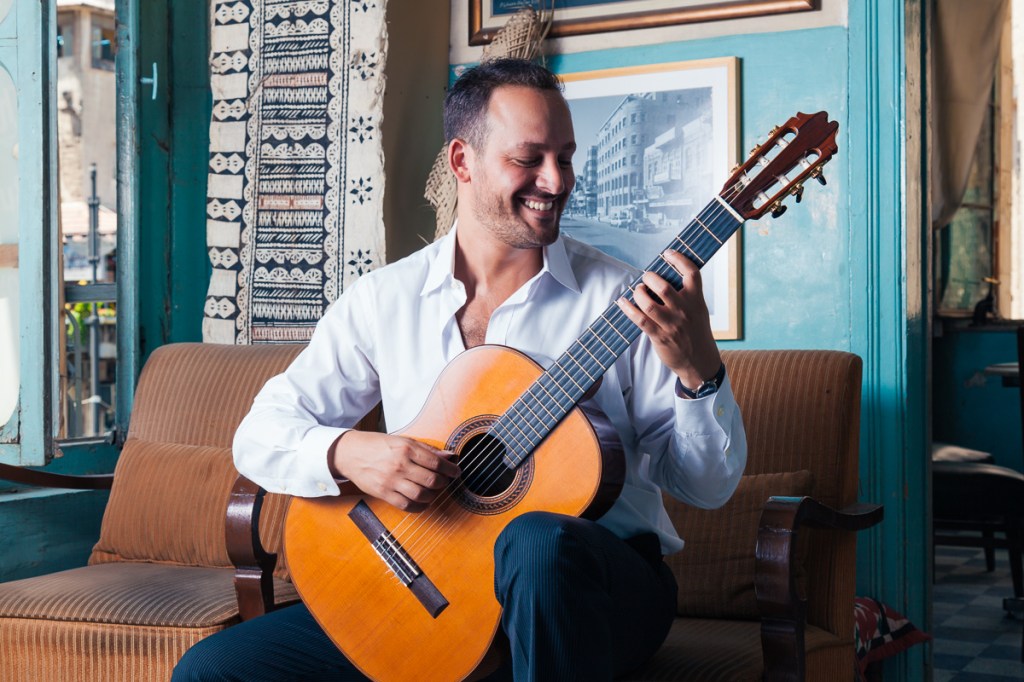
Which guitarists/musicians have had the most influence on you?
Slash at first, for sure. The lyricism in his solos on their records was an incredible ear-opening experience for me. The discovery of “goose bumps” even, happened first as I remember from his playing on those cassettes. What an incredible feeling! That same feeling was experienced at a high level of intensity later in my life, when I was listening to Itzhak Perlman, playing Bach’s Sonatas and Partitas on violin while I commuted to work, training to be a Mutual Funds Advisor, which prompted me then to pursue music as a full-time profession. Those two musicians have left a lasting impact on my musical character on the whole, I would say.Today I cherish recordings by many great artists. Classical solo recordings by Julian Bream, John Williams, Andrés Segovia, David Oistrakh, Glenn Gould, Hélèn Grimaud, Daniel Barenboim, Amandine Beyer, Itzhak Perlman, Nathan Milstein, Jascha Heifitz, Josef Hassid, Nigel Kennedy, Kazuhito Yamashita, Janine Jansen and Paco de Lucia come to mind at this moment.
If you have recordings, which recording/s are you most proud of?
I am actually most proud of two of my latest releases: my album “Copla”, an all-Spanish repertoire recording, and my “Harb Plays Carcassi Studies” recording and educational DVD. The latter is an educational DVD first, made possible through a collaboration with Diego De Oro, owner of De Oro Music Publications. The performance tracks from the DVD have been compiled and released as a separate album. I’m also happy about a recent YouTube video recording I did of Bach’s famous Toccata and Fugue, BWV 565 arranged by Edson Lopes and recorded by Drew Henderson in a beautiful church in Toronto.
Are there any recordings that you consider have the finest recorded sound for guitar?
I really like the sound on Florian Larousse’s Laureate Naxos album. There is something magical about the sound there! I also like the sound on John Williams’ “The Great Paraguayan” album. Even though I’m not a big fan of the Smallman sound, somehow Williams makes it sound regal.
What are some up and coming projects (recordings, concerts) you are excited about?
I’m very excited about a tour that I got selected for next year’s season, which I can’t really share the details of because it hasn’t been officially announced yet! I’ll share all the concert dates on my website (tariqharb.com) once they’re made public. Prior to that I’m looking forward to officially getting back on stage, November 2020 in my second home Montréal, at the Chapelle Historique du Bon Pasteur, a gorgeous church that is perfect for guitar, and that I’ve always dreamt of performing in after attending some concerts there. I also can’t wait to perform concerts that were postponed due to the pandemic, including an Aranjuez concerto performance with the Orchestre Symphonique de l’Isle. Next year will be their 20th season anniversary, so it worked out even better!For new records, I’m planning on recording an album consisting of my original compositions (the score to “Spirit”, a five-movement work for solo guitar is now available via Les Productions d’OZ: https://productionsdoz.com/product/8769-spirit) and pieces that are dedicated to me by other composers (like “Hyperion” by Harry Stafylakis: https://productionsdoz.com/product/936-hyperion). I’m also planning on recording an all-Bach album, sometime in the near future!
Technique and Performance
How much do you practice? And, do you structure your practice in any particular way?
40 hours a day, à la Ling Ling! (@twosetviolin reference) Jokes aside, a morning practice session is important for me to maintain a healthy routine, which usually lasts between 3-4 hours. After that, anything goes; I can play through pieces in the evening, which sometimes turn into performances if I am outdoors (!),or not play at all, because of teaching or other tasks. The morning session is quite consistent so that would be the real practice time that I do.
Are there aspects of guitar that you struggle with or that you are still working on?
Oh, I’m working on it all the time! I don’t think there is such a thing as not practicing at all yet still having a polished technique, unless one is on tour. What is also true, I find, is if I practice well, say during one full winter season, the coming spring and summer seasons I often find myself just playing, and not really practicing methodically, which is ultimate fun as you may know! Then however, come the fall season, I start feeling certain aspects of technique need maintenance, and so on the cycle goes. It’s a way of life more than something separate from one’s life, at least in my experience. Having said that, there is no real struggle pertaining to playing the instrument. It is more of incorporating it in one’s life, if one chooses, in a way that enhances the quality of one’s life and improves it. I guess reaching that point and finding a working balance might be considered a struggle at first.
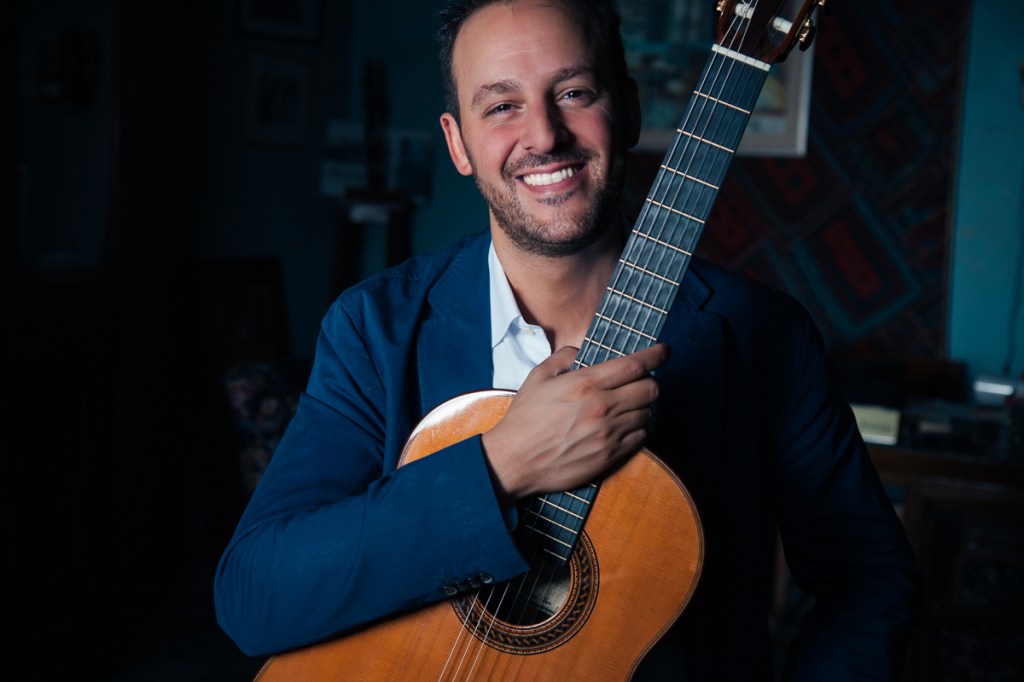
Do you deliberately memorize music or have a technique that helps assimilate music into memory?
For me the more complicated the music the easier it is to memorize. But that doesn’t apply to the music of J.S. Bach! Simpler or easier repertoire is easy to sight read ‘a tempo’ and does not require special attention allotted to either hand. So my eye doesn’t have to leave the page and therefore I’m not encouraged to memorize it. In general, playing a piece, reading it multiple times usually imprints it in my memory. If there are tough spots I tend to use visualization, both visualizing the score and both hand movements on the guitar.
Have you published any editions or do you plan to publish your own editions in the future?
Yes. I have several editions published via my online store (tariqharb.storenvy.com), including my most recent edition of the Carcassi 25 Melodic and Progressive Studies, Op. 60. Arrangements of music by Vivaldi, Albinoni, Bach and others are also available. I have an arrangement of Britten’s first Cello Suite that I am excited to publish once the royalties are sorted out. I also have some compositions published via my store and via Les Productions d’OZ, mentioned above.
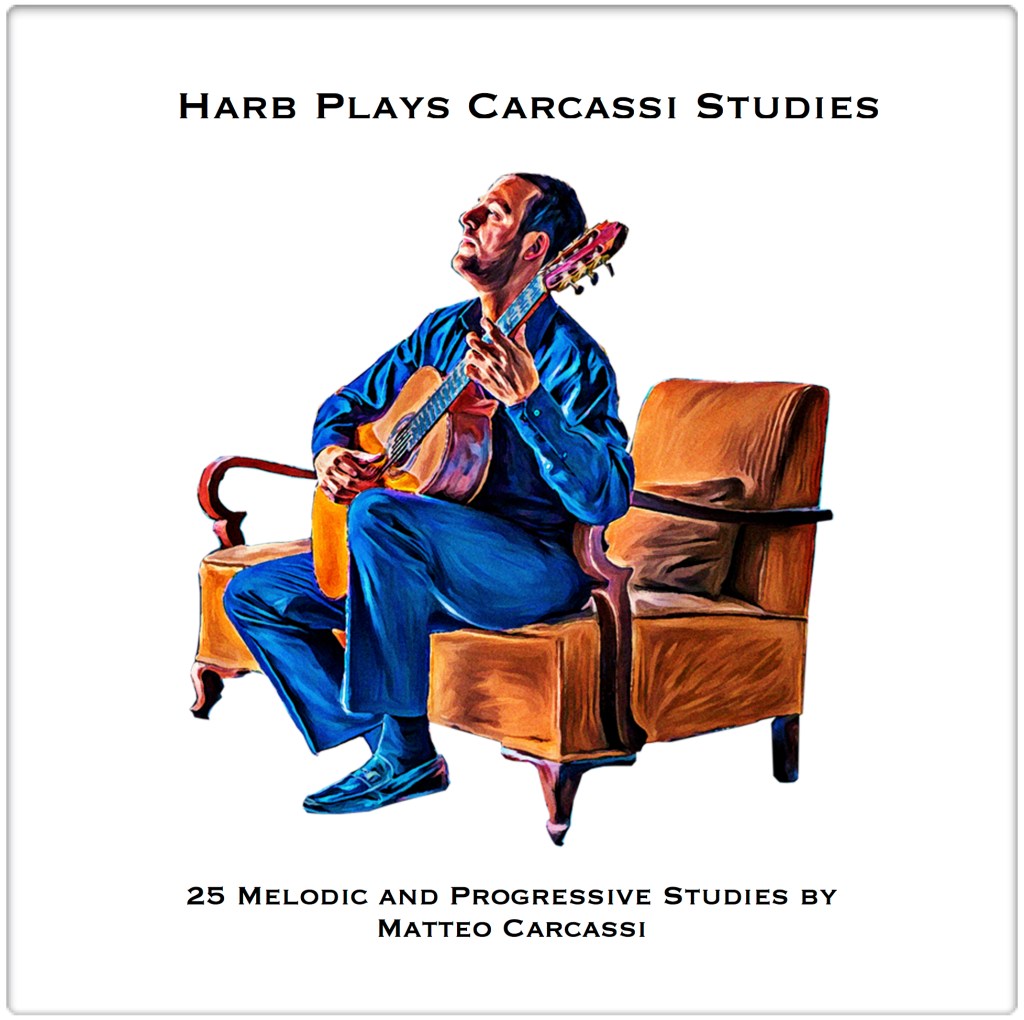
Do you have a favorite drill you use to warm up?
I usually try to visit what I like to call ‘the five pillars of technique’ when I warm up: scales, arpeggios, tremolo, left-hand slurs and some rasgueados. I do a bit of each at a comfortable pace and try to enjoy the feeling of gravity helping me out executing each of them.
Do you have any pre-concert rituals?
I try to relax on the day of the concert and do minimal practice. Back stage however, I do some breathing exercises and usually like to have an orange or a clementine; they hydrate really well and therefore help with the talking part during a concert, as I do like to say a few things to the audience about the pieces I perform!
Do you do anything to your nails or shape them in a particular way?
I like to file my nails to a blunted shape with a bit of a ramp on the index and middle fingers (pictures attached). I also attach a piece of a ping pong ball under my thumbnail to re enforce it.
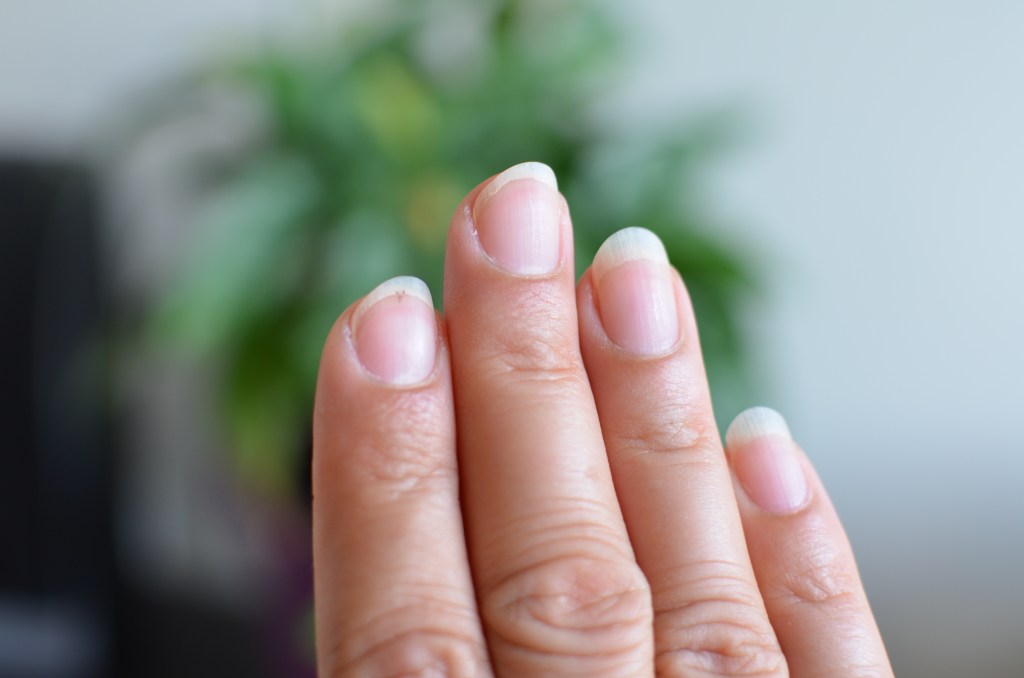
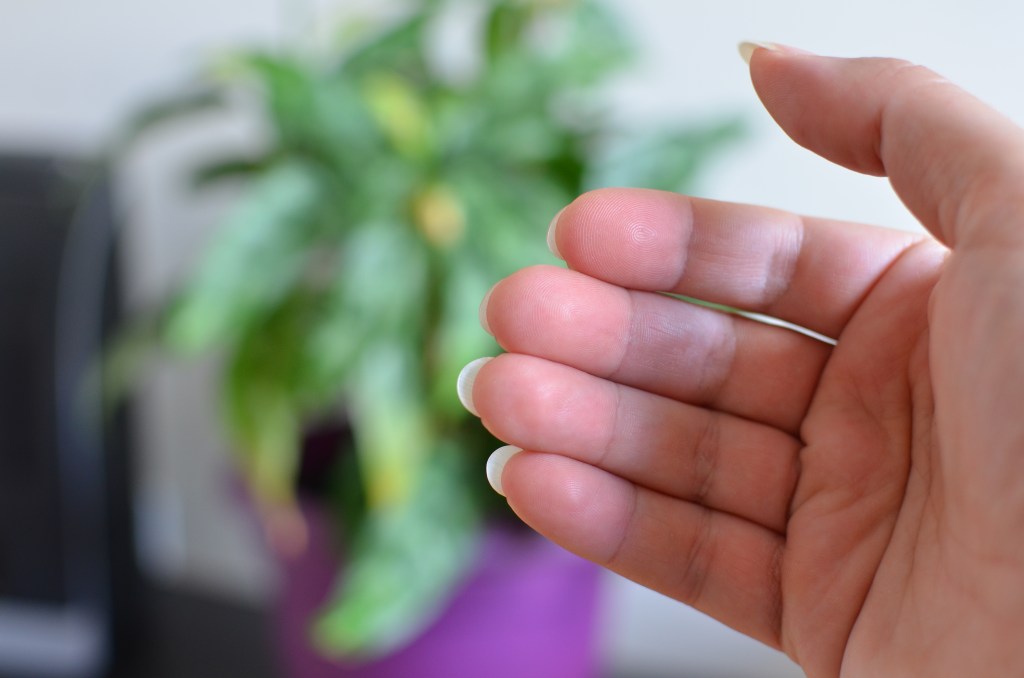
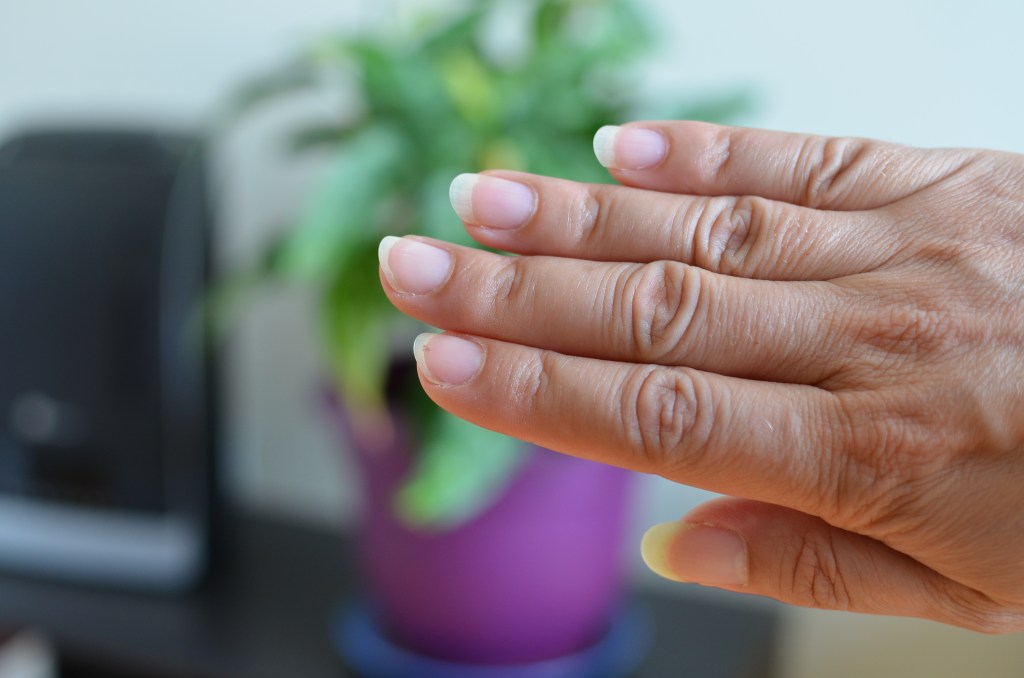
Advice to Younger Players
What single most important piece of advice about practicing would you offer to younger players?
Revisit the basics often and apply variety in your playing. By that I mean be creative with the way you practice, the way you handle the guitar, the way you warm up. Don’t do the same thing over and over again, especially if it’s not yielding consistent positive results. If possible, learn another instrument well, especially one that is not from the immediate family of the guitar. By doing that you are providing enough variety for your brain to stay healthy and encourage plasticity, which in turn improves your learning abilities when you go back to the guitar.
What repertoire do you consider essential for young/conservatory students to assimilate? Why?
All the simple and advanced studies and lessons by Sor, Aguado, Carulli, Giuliani, Carcassi and Coste are important for young students to play well, because they will help in understanding and learning to navigate the guitar’s interface successfully. They will also teach, by osmosis, sort to speak, the idiomatic nature of the guitar and it’s idiosyncrasies.
Recordings that every young guitarist should be familiar with and why?
The recordings of the great old masters: Andrés Segovia, Julian Bream, John Williams are essential for every classical guitarist to know well, simply to become aware of the coloristic and expressive possibilities of the instrument early on.
Tangent
What is the last book that you read? Favorite author/s?
“Music in the Castle of Heaven” by John Eliot Gardiner was the last book I read.Two of my favourite authors are Paulo Coelho and Clive Staples Lewis.
Do you try to stay healthy? Exercise? Follow a particular diet? Have a favorite pre-concert food?
Yes, I exercise 4-5 times a week doing either a run outdoors, or engaging in High Intensity Interval Training (HIIT), which has become a game changer as to how I can incorporate exercise after guitar practice. Exercise usually happens in the afternoon after my morning practice session. I don’t follow a particular diet as I do pretty much eat everything (thankfully no allergies). But I do prefer a more protein based meal before performance. I find if I have mainly carbohydrates before a performance, I tend to feel heavy overall and a bit lethargic. A high-protein meal gives me sustained energy, and a clementine or an orange before going on stage keeps me hydrated and keeps my mind sharp.
Do you meditate in any way?
Not so much, every now and then I do meditation. But it has never become a steady routine.
What is your favorite way to spend time when not practicing?
Spending time with close friends and family, cooking, swimming, enjoying the outdoors, watching thought-provoking movies and space documentaries, and occasionally annoying my cat through forced affection LOL!
For more info on Tariq check out the links below:
Website: www.tariqharb.com
Facebook: www.facebook.com/tariqharb
Instagram: www.instagram.com/tariqharbmusic
YouTube: www.youtube.com/teeharb
Online store: tariqharb.storenvy.com
Faculty profile at Concordia University: www.concordia.ca/faculty/tariq-harb.html

One thought on “Featured Artist and Interview – Tariq Harb”